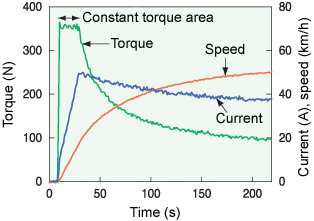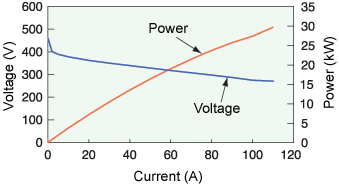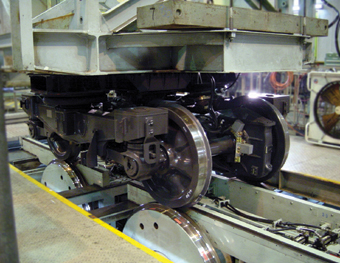| 1. Application of Fuel Cells for Rail Vehicle Power Supply | |||
|
In line with the increased interest in environmental issues, the development of fuel cells using hydrogen as an energy source has recently been promoted as a means of clean power supply. Basic research has therefore been conducted into the use fuel cells as a power supply for railway vehicles. A feasibility study showed that railway vehicles driven by fuel cells can reduce energy consumption by at least half compared to current diesel cars, while CO2 emissions can be reduced by approximately 30%, including the effects of idling stops and reuse of braking energy. To investigate the basic characteristics of fuel cells, a 30kW-class fuel cell system prototype was built, and its output characteristics were checked in a stationary power generation test using pure hydrogen and air (Fig.1). A driving test was also performed using the above fuel cell system as a power supply after setting up an electric train bogie (equivalent to that used for an actual electric commuter train) on a vehicle test bench (Fig.2). Though the output of fuel cells was small compared to actual railway vehicles, in the driving test the bogie could be driven up to 50km/h with the equivalent inertia weight on the vehicle test bench side set to about 1/2 and the acceleration to about 1/3 (about 1km/h/s in the constant torque area) that of an electric commuter train (Fig.3). In the future, the applicability of fuel cells will further be investigated by running actual vehicles with larger-capacity fuel cell systems.
 Fig.3 Relationship between driving torque and speed |

